-
 +21 +2
+21 +2The Human Brain Shows a Weird Preference For Sounds From The Left
The next time you whisper sweet-nothings into someone's ear, you might want to target their left side.
-
 +22 +5
+22 +5Bees can do so much more than you think – from dancing to being little art critics
We all know bees are vital pollinators. But they’re also art critics, social learners, dancers and so much more.
-
 +15 +2
+15 +2NHL enforcers die 10 years younger than their fellow players, study finds | CBC Sports
A study of former National Hockey League players shows that enforcers who spent a lot of time dropping their gloves or in the penalty box lived significantly shorter lives than their peers.
-
 +21 +4
+21 +4NHL enforcers die on average 10 years younger than their fellow players, study finds
A study of former National Hockey League players shows that enforcers who spent a lot of time dropping their gloves or in the penalty box lived significantly shorter lives than their peers. Researchers at Columbia University in New York reached the conclusion after analyzing data from 6,039 NHL players from 1967 to last spring.
-
 +15 +2
+15 +2New Alzheimer’s drug slows cognitive decline by 35%, trial results show
Donanemab is second drug in a year to succeed in trials in what could be ‘beginning of the end’ of disease
-
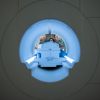 +22 +5
+22 +5Brain activity decoder can reveal stories in people's minds
A new artificial intelligence system called a semantic decoder can translate a person's brain activity—while listening to a story or silently imagining telling a story—into a continuous stream of text. The system developed by researchers at The University of Texas at Austin might help people who are mentally conscious yet unable to physically speak, such as those debilitated by strokes, to communicate intelligibly again.
-
 +15 +2
+15 +2Humans struggle to differentiate imagination from reality
The more vividly a person imagines something, the more likely it is that they believe it’s real, finds a new study by UCL researchers.
-
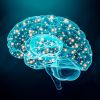 +3 +1
+3 +1Maternal antipathy in childhood is linked to aberrant brain reactions to social reward anticipation in adulthood, study finds
A neuroimaging study of adults with varying levels of adverse childhood experiences showed that participants reporting higher levels of maternal antipathy (in childhood) exhibited reduced activation in the brain reward network when they anticipated social rewards. Normally, activations in brain regions underlying reward processing are elevated when a person is anticipating social rewards. The study was published in Translational Psychiatry.
-
 +30 +8
+30 +8How Psilocybin Mushrooms Can Be Used to Treat Depression
Depression is becoming increasingly prevalent, with an estimated 5% of adults suffering from this mental health condition globally. The Diagnostic and Statistical Manual of Mental Disorders, Fifth Edition (DSM-5) sets out multiple criteria for clinical depression. These include persistent low mood nearly every day for a period longer than 2 weeks and diminished ability to concentrate.
-
 +19 +2
+19 +2From brain waves, this AI can sketch what you're picturing
Researchers around the world are training AI to re-create images seen by humans using only their brain waves. Experts say the technology is still in its infancy, but it heralds a new brain-analysis industry.
-
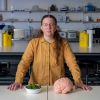 +15 +2
+15 +2Eating more magnesium each day keeps dementia at bay
More magnesium in our daily diet leads to better brain health as we age, according to scientists from the Neuroimaging and Brain Lab at The Australian National University (ANU).
-
 +10 +3
+10 +3The professor trying to protect our private thoughts from technology
Prof Nita Farahany argues in her new book, The Battle for Your Brain, that intrusions into the mind are so close that lawmakers should enact protections.
-
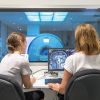 +15 +1
+15 +1Can a ‘Fingerprint’ of Your Brain Help Predict Disorders?
When she gets ready for bed, Ava Manning doesn’t bother wearing an eye mask or earplugs, but she takes five minutes to strap on her electroencephalography (EEG) headband. The accessory is made of plush foam and adorned with six electrodes that press comfortably against her temples, allowing Manning to peacefully sleep while the device monitors, analyzes and acts on her brain waves overnight.
-
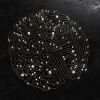 +18 +1
+18 +1The Quest for Injectable Brain Implants Has Begun
OUR WORLD IS populated by hundreds of thousands of cyborgs. Some are Parkinson’s patients, who can shut off their tremors by activating metal electrodes implanted deep within their brains. Others—albeit far fewer—are completely paralyzed people who can move robotic limbs with their minds, thanks to their own implants. Such technologies can radically improve someone’s quality of life. But they have a major problem: Metal and the brain get along very, very poorly.
-
 +13 +2
+13 +2Poor sleep can impact brain health
Poor sleep in middle age can have a negative impact on brain health, according to a study by researchers at The Australian National University. The study looked at the sleep habits of over 29,000 people aged between 37 and 73 and could provide the basis for helping to combat major diseases like dementia.
-
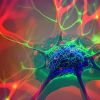 +15 +2
+15 +2Breakthrough study discovers that psychedelics breach our neurons
Researchers have discovered that psychedelics can activate 5-HT2A receptors inside of cortical neurons, a possible cause of their therapeutic effects.
-
 +17 +3
+17 +3'Truth serum' drugs do exist. Here's how medicines like sodium pentothal and scopolamine can manipulate the brain.
"Truth serum" comes in several forms, including sodium pentothal. Find out how the drugs work to make it more difficult — but not impossible — to lie.
-
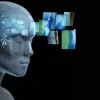 +23 +1
+23 +1Introducing Stable Diffusion AI: A Breakthrough in Brain Function Research
At the forefront of artificial intelligence research, Japanese scientists have developed Stable Diffusion AI, a groundbreaking approach to understanding brain function. This revolutionary technique offers a new way to model complex systems and has the potential to unlock new insights into the workings of the human brain.
-
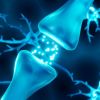 +13 +2
+13 +2Psychedelics may treat depression by invading brain cells
Psychedelic drugs have shown promise as therapies for hard-to-treat depression. Now, scientists have a potential explanation for why: The drugs may be able to slip through the outer membranes of brain cells and essentially flip switches inside the cells that other depression treatments can't.
-
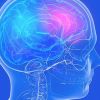 +18 +6
+18 +6How Bacteria Invade the Brain
Research shows that bacteria hijack crosstalk between nerve and immune cells to cause meningitis
Submit a link
Start a discussion




















